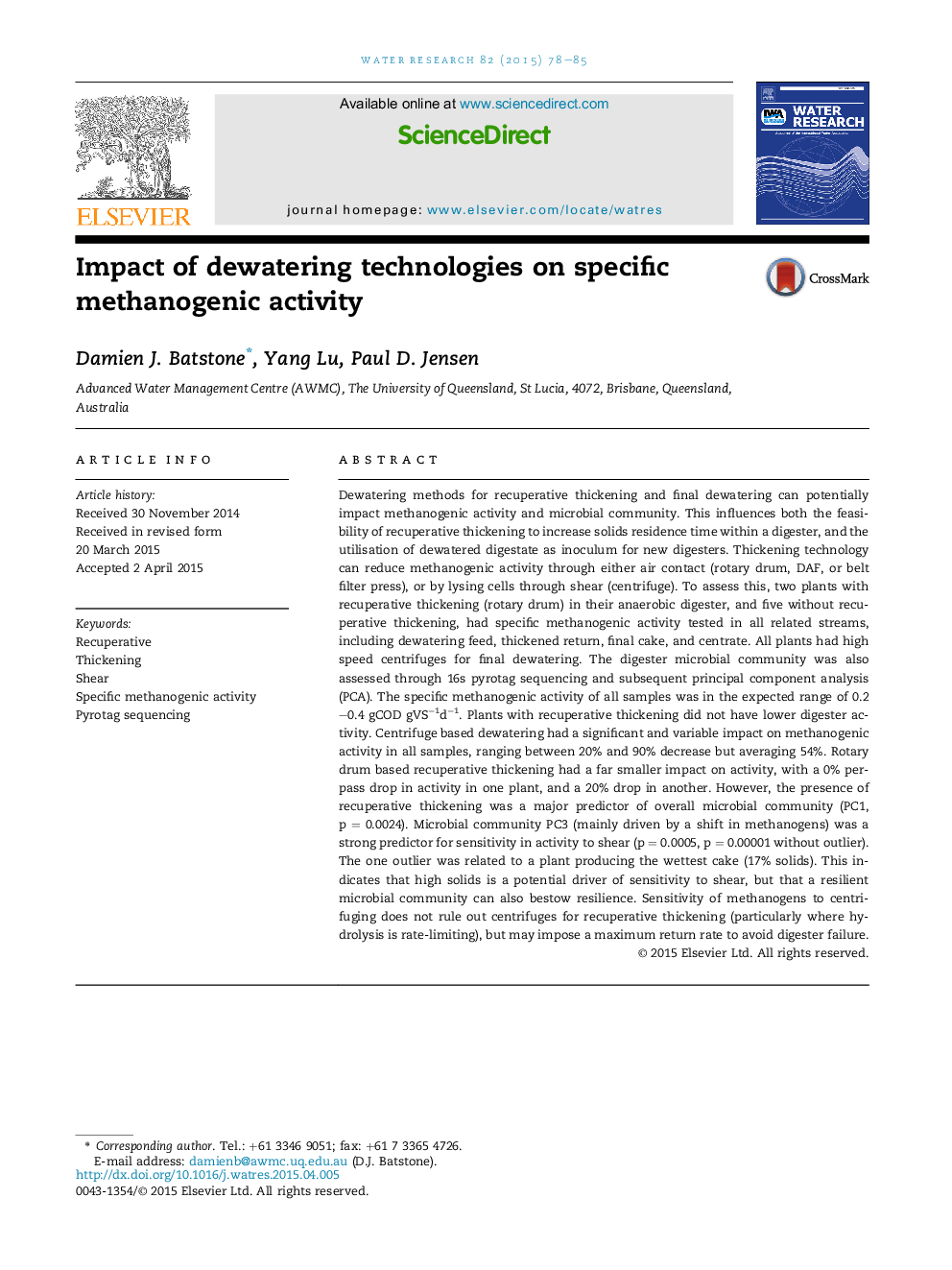| کد مقاله | کد نشریه | سال انتشار | مقاله انگلیسی | نسخه تمام متن |
|---|---|---|---|---|
| 4481060 | 1623086 | 2015 | 8 صفحه PDF | دانلود رایگان |
• Centrifuging causes decrease in specific methanogenic activity.
• Rotary drum thickening (RDT) causes minor or no decrease.
• Presence of RDT recuperative major predictor in microbial community.
• No loss in activity related to presence of RDT recuperative thickening.
• Sensitivity to shear strongly correlated to microbial community PC3.
Dewatering methods for recuperative thickening and final dewatering can potentially impact methanogenic activity and microbial community. This influences both the feasibility of recuperative thickening to increase solids residence time within a digester, and the utilisation of dewatered digestate as inoculum for new digesters. Thickening technology can reduce methanogenic activity through either air contact (rotary drum, DAF, or belt filter press), or by lysing cells through shear (centrifuge). To assess this, two plants with recuperative thickening (rotary drum) in their anaerobic digester, and five without recuperative thickening, had specific methanogenic activity tested in all related streams, including dewatering feed, thickened return, final cake, and centrate. All plants had high speed centrifuges for final dewatering. The digester microbial community was also assessed through 16s pyrotag sequencing and subsequent principal component analysis (PCA). The specific methanogenic activity of all samples was in the expected range of 0.2–0.4 gCOD gVS−1d−1. Plants with recuperative thickening did not have lower digester activity. Centrifuge based dewatering had a significant and variable impact on methanogenic activity in all samples, ranging between 20% and 90% decrease but averaging 54%. Rotary drum based recuperative thickening had a far smaller impact on activity, with a 0% per-pass drop in activity in one plant, and a 20% drop in another. However, the presence of recuperative thickening was a major predictor of overall microbial community (PC1, p = 0.0024). Microbial community PC3 (mainly driven by a shift in methanogens) was a strong predictor for sensitivity in activity to shear (p = 0.0005, p = 0.00001 without outlier). The one outlier was related to a plant producing the wettest cake (17% solids). This indicates that high solids is a potential driver of sensitivity to shear, but that a resilient microbial community can also bestow resilience. Sensitivity of methanogens to centrifuging does not rule out centrifuges for recuperative thickening (particularly where hydrolysis is rate-limiting), but may impose a maximum return rate to avoid digester failure.
Figure optionsDownload high-quality image (218 K)Download as PowerPoint slide
Journal: Water Research - Volume 82, 1 October 2015, Pages 78–85
